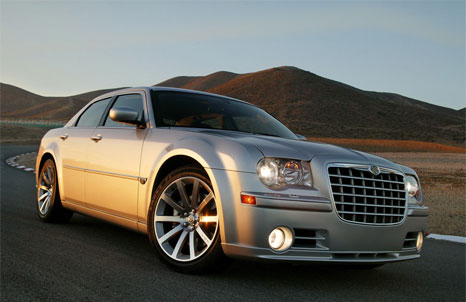

“If my dealership is not restored, we will lose everything — including college savings for my children and my home,” James Tarbox, who lost two Chrysler dealerships in Rhode Island, said on the second day of a House Judiciary Committee hearing about the dealership cuts.
“You would not believe the human suffering that is being caused by this reckless abuse of bankruptcy laws,” John J. Fitzgerald, who lost five Chrysler stores and three G.M. stores, said. “It is indescribable the things that I’ve heard. It is just not the American way.”
Louann Van Der Wiele, a Chrysler vice president and associate general counsel, defended the company’s decision to cut a quarter of its dealerships while it reorganized in bankruptcy.
She said the deal under which Chrysler’s good assets had been sold to the Italian carmaker Fiat last month could fall apart if the auto dealerships were restored. The rest of the company, now known as Old Carco, remains in bankruptcy protection and will be sold off in pieces.
“Legislation aimed at reversing some of the painful but necessary actions taken during Old Carco’s bankruptcy,” Ms. Van Der Wiele said, “will simply take Chrysler back to the future that Old Carco faced not long ago — and this time, without the option of a purchaser for substantially all of its assets. Complete liquidation, with all of its dire consequences, could follow.”
Committee members from both parties repeatedly demanded that executives from Chrysler and G.M. explain how the dealership cuts would lead to more profits for the companies and reacted skeptically to the answers they heard. Representative Bradley J. Sherman, Democrat of California, lamented that even if fewer dealerships did lead to higher profits, it would mean consumers would pay more for vehicles.
“If these dealers were so ineffective, why not just let them die on their own?” asked Representative Trent Franks, Republican of Arizona.
The G.M. executive who testified, Michael J. Robinson, said the automaker was trying to help the nearly 2,000 dealers whose franchise agreements would not be renewed next year by paying them about $600 million. Mr. Robinson, a G.M. vice president and its general counsel for North America, said, “While this process is far from painless, we think it is far preferable to an abrupt termination.”
Chrysler, in contrast, gave its dealers about four weeks’ notice before terminating their franchises and offered them no financial support, though it redistributed much of their inventory for a per-vehicle fee.
Kevyn D. Orr, a partner with Chrysler’s bankruptcy law firm, Jones Day, said the company did not have enough cash on hand to do a wind-down like G.M.’s.
Both companies said they had far too many dealers for the number of vehicles they now sell. G.M. said Wednesday that its global sales in the first half of 2009 fell 22 percent from a year earlier, largely because of its troubles in the United States.
No comments:
Post a Comment